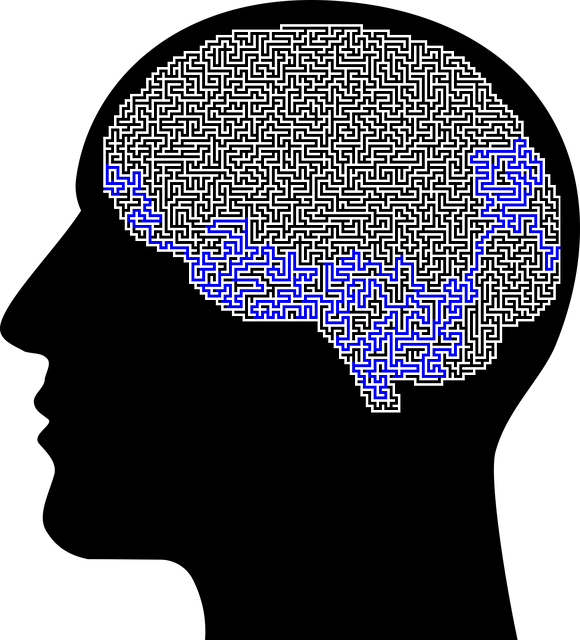Social Skills Training (SST) is a crucial component of holistic mental health care for young adults, especially within gender-affirming therapy models. This approach addresses the link between social abilities and mental well-being, reducing stress and improving treatment outcomes. Tailoring therapeutic methods to individual needs, particularly in LGBTQ+ communities, helps manage anxiety and loneliness. Specialized programs focus on enhancing communication, empathy, and emotional regulation through dynamic environments, fostering resilience and authentic self-expression. By integrating SST into mental health awareness, young adults gain social tools for improved relationships and overall well-being.
Social skills training is a powerful tool in supporting individuals with mental health conditions, especially young adults. This comprehensive guide explores the intricate relationship between social abilities and mental wellness, highlighting the significance of gender-affirming care in fostering social growth. We delve into effective therapy approaches tailored for young adults, uncovering the building blocks of successful training programs. From real-world applications to inspiring success stories, this article offers valuable insights into enhancing social skills through targeted interventions, particularly relevant in today’s diverse and inclusive society, with a focus on therapy for young adults and gender-affirming care.
- Understanding the Link Between Social Skills and Mental Health
- The Impact of Gender-Affirming Care on Social Growth
- Effective Therapy Approaches for Young Adults
- Building Blocks of Social Skills Training
- Real-World Applications and Success Stories
Understanding the Link Between Social Skills and Mental Health

In today’s world, the importance of social skills in maintaining mental health cannot be overstated, especially when considering therapy for young adults. Social skills training plays a pivotal role in fostering better relationships and enhancing overall well-being, which is particularly crucial for those navigating mental health conditions. By understanding the intricate link between these two aspects, mental health professionals can offer more holistic care, especially within the context of gender-affirming care, which has been shown to significantly impact positive outcomes.
The benefits extend beyond improving social interactions; effective training can also serve as powerful stress reduction methods. Many mental health conditions are exacerbated by social anxiety and loneliness, so teaching individuals essential social skills becomes a strategic approach to managing these issues. This is where professionals must be vigilant in assessing the unique needs of each client, conducting thorough risk assessments, and tailoring their therapeutic approaches accordingly.
The Impact of Gender-Affirming Care on Social Growth

The concept of gender-affirming care has significantly impacted the social growth and development of young adults navigating mental health conditions, especially within the LGBTQ+ community. This approach, which includes therapy, support groups, and medical interventions aligned with an individual’s affirmed gender identity, creates a safe and validating environment crucial for building healthy relationships. By fostering acceptance and encouraging self-expression, gender-affirming care can prevent burnout, a common issue faced by many young adults struggling with their mental health. The supportive network built through these care strategies enables individuals to develop essential social skills, enhancing their ability to connect with peers and seek help when needed, ultimately leading to improved crisis intervention abilities.
For healthcare providers, integrating gender-affirming care into their practice requires a nuanced understanding of the unique challenges faced by young adults. Adapting traditional therapy models to accommodate diverse identities is key to providing effective burnout prevention strategies. Crisis intervention guidance specific to this population can be tailored to address social isolation and enhance coping mechanisms, ensuring that young adults receive comprehensive support for both their mental health conditions and their overall social well-being.
Effective Therapy Approaches for Young Adults

For young adults dealing with mental health conditions, specialized therapy approaches tailored to their unique needs can significantly improve outcomes. Gender-affirming care, a progressive aspect of mental health treatment, has proven effective in fostering resilience among this demographic. This approach ensures that therapies are inclusive and sensitive to gender identity, creating a safe space for individuals to express themselves authentically. Such personalized care is pivotal in encouraging open communication and facilitating progress in coping skills development.
In the context of healthcare, Burnout Prevention Strategies for Healthcare Providers play a supportive role. By implementing evidence-based practices, therapists can enhance their sessions, leading to better patient engagement. Incorporating strategies that address burnout among mental health professionals is crucial as it indirectly benefits patients, ensuring consistent and compassionate care. This holistic approach, coupled with Mental Health Policy Analysis and Advocacy, contributes to a comprehensive framework, ultimately enhancing the availability and quality of services for young adults navigating mental health challenges.
Building Blocks of Social Skills Training

Social Skills Training (SST) forms a cornerstone in the therapeutic landscape for young adults navigating mental health conditions. At its core, SST focuses on fostering effective communication, empathy, and emotional regulation—essential building blocks for meaningful social interactions. Through dynamic, gender-affirming care, therapists create safe spaces where individuals can learn and practice skills that enhance their relationships and overall well-being.
This holistic approach goes beyond mere technique; it encourages positive thinking and resilience-building by empowering participants to understand and manage their emotions in various social contexts. By integrating SST into the broader framework of mental health awareness, young adults are equipped with the tools needed to thrive socially while cultivating a sense of self-assurance and confidence in their ability to connect with others authentically.
Real-World Applications and Success Stories

Social skills training has found its place as a powerful tool within mental health treatment plans, especially for young adults navigating their identity and well-being. These real-world applications have led to remarkable success stories, highlighting the transformative potential of such programs. Many mental wellness coaching programs design their curriculum around fostering social connections and improving communication skills, which are often affected in individuals with various mental health conditions.
One notable area of focus is gender-affirming care, where specialized therapy sessions prepare young adults for social interactions while embracing their authentic selves. This approach has proven beneficial in building resilience and enhancing overall mental wellness. Additionally, mental health education programs can incorporate practical guidance on journaling exercises to reflect on social experiences, encouraging self-awareness and personal growth. These initiatives contribute to a holistic understanding of mental wellness, ensuring individuals feel equipped to manage social challenges while pursuing their personal development journeys.
Social skills training, especially tailored for young adults with mental health conditions, offers a promising path to improved well-being. As discussed in this article, understanding the intricate link between social skills and mental health is paramount. Gender-affirming care has proven to be a transformative force, fostering positive social growth in vulnerable populations. The various therapy approaches highlighted here provide valuable tools for professionals treating young adults. By focusing on building essential social skills, practitioners can empower their clients to navigate social interactions with confidence. Real-world success stories serve as a testament to the effectiveness of these interventions, ultimately enhancing the lives of those affected by mental health conditions.









